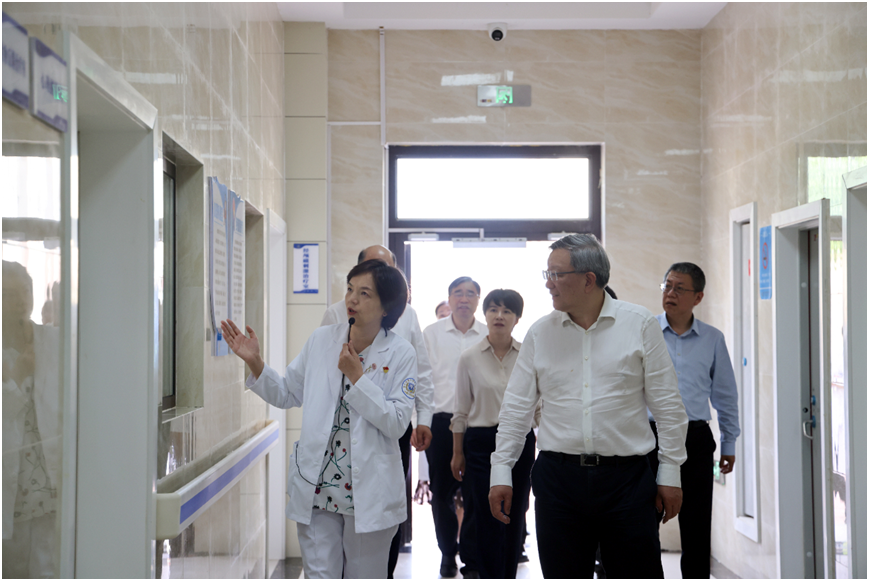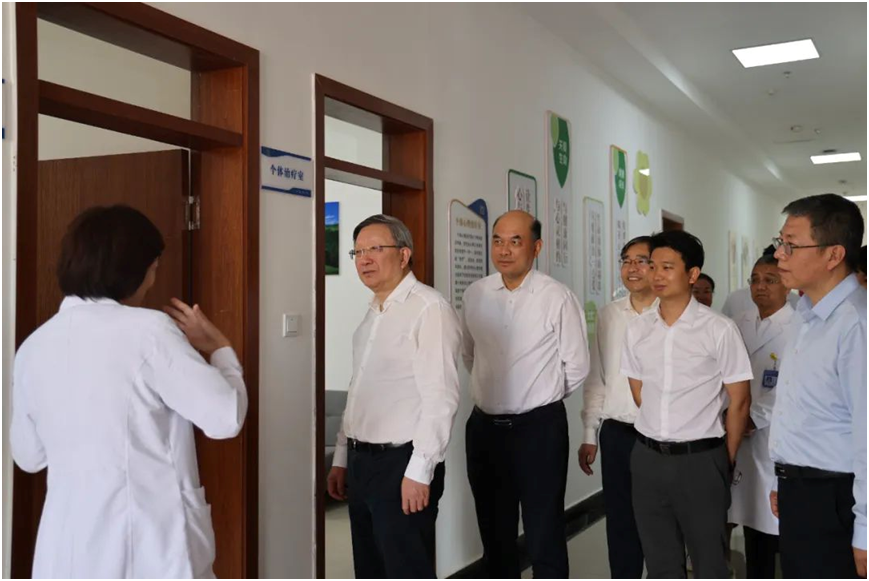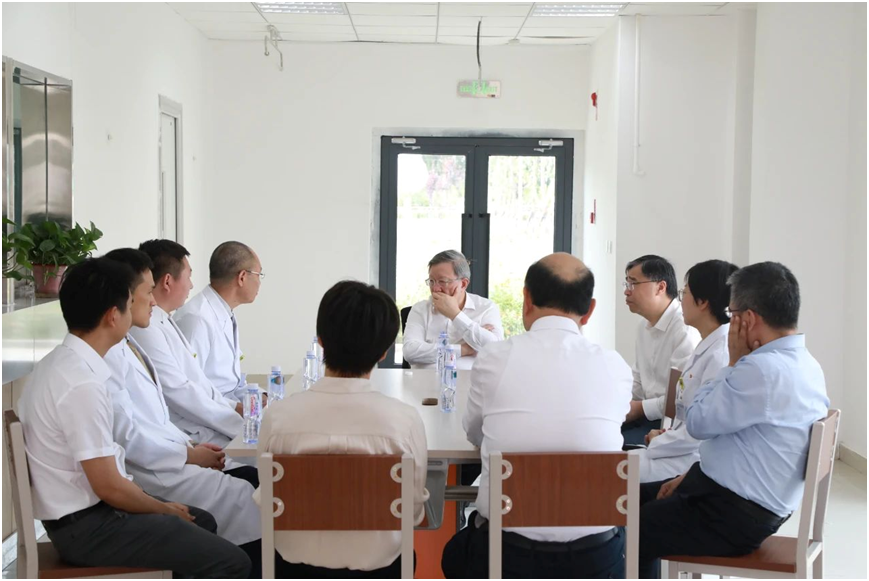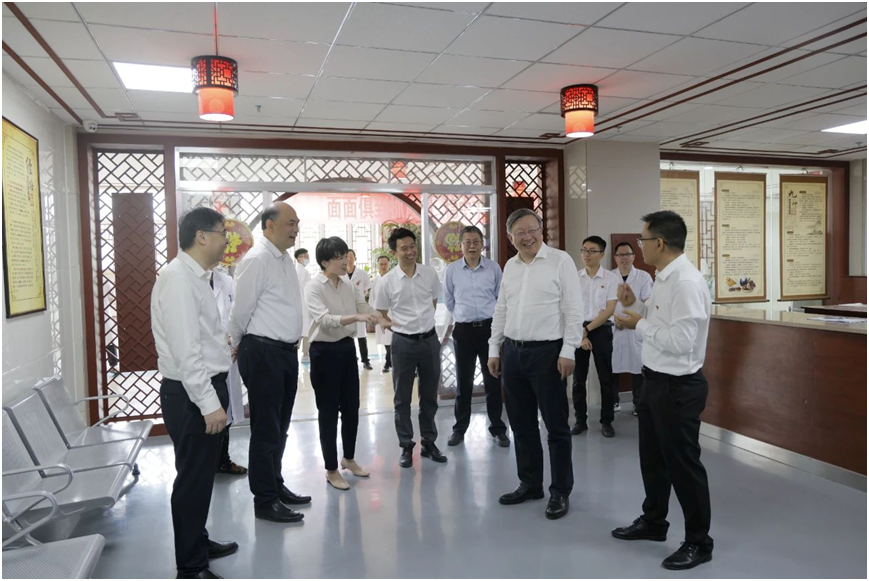Dr. Cai Xiujun, Standing Committee Member of the National Committee of the CPPCC and President of SRRSH, and his team visited SRRSH Alaer Hospital
2024/07/08Edited by Andie (Xi Yue)
On July 5, Dr. Cai Xiujun, President of Sir Run Run Shaw Hospital (SRRSH), affiliated with Zhejiang University School of Medicine, and Dr. Ding Guoqing, Vice President of SRRSH, visited Alaer Hospital for investigation. Dr. Cai is also the Standing Committee Member of the National Committee of the 14th Chinese People's Political Consultative Conference (CPPCC), Vice Chairman of Zhejiang Provincial Committee of the CPPCC, Standing Committee Member of China Association for Promoting Democracy, and Vice Dean of Zhejiang University School of Medicine. The delegation was accompanied by several leaders, including Mr. Liu Wei, Member of the Party Leadership Group and Deputy Head of the Health Commission of the Xinjiang Production and Construction Corps (XPCC), Deputy Division Commander of the First Division of the XPCC, Ms. Xiao Chenxi, Member of the Party Leadership Group and Deputy Mayor of People’s Government of Alaer City and Alaer Hospital leaderships.



Dr. Cai and the rest of the delegation visited the public health clinical center, the mental health center, and Twelfth Regiment Hospital and learned about the practices and achievements of the medical community in medical reform and the prevention and treatment of tuberculosis and occupational diseases. In the public clinical center, Dr. Cai had a cordial colloquium with medical staff and discussed the development orientation of the center with Zhejiang Hospital of Integrated Traditional Chinese and Western Medicine (Hangzhou Red Cross Hospital) and Dr. Cai Qingshan, Vice President of SRRSH Alaer Hospital. He also offered valuable advice on what to do for the existing problems faced by the center.



Dr. Cai and his team highly recognized the performance of the above hospitals. He pointed out that SRRSH Alaer Hospital, while maintaining its high-quality growth, must continue to deepen digital reform and explore targeted, convenient new health management models covering the full life cycle by utilizing latest techniques, such as Internet healthcare and big data. According to Dr. Cai, the hospital needs to improve its mechanism for introducing skilled and innovative medical personnel and strengthen the talent team at the grassroots level; experts stationed in Xinjiang should fully display their roles as communicators, coordinators, and advisors to share quality medical resources with grassroots. In doing so, the service capacity of local medical institutions can be improved as a step towards building the “1+5+N” new medical service system, making for a branch of SRRSH with authentic Xinjiang and XPCC characteristics.







